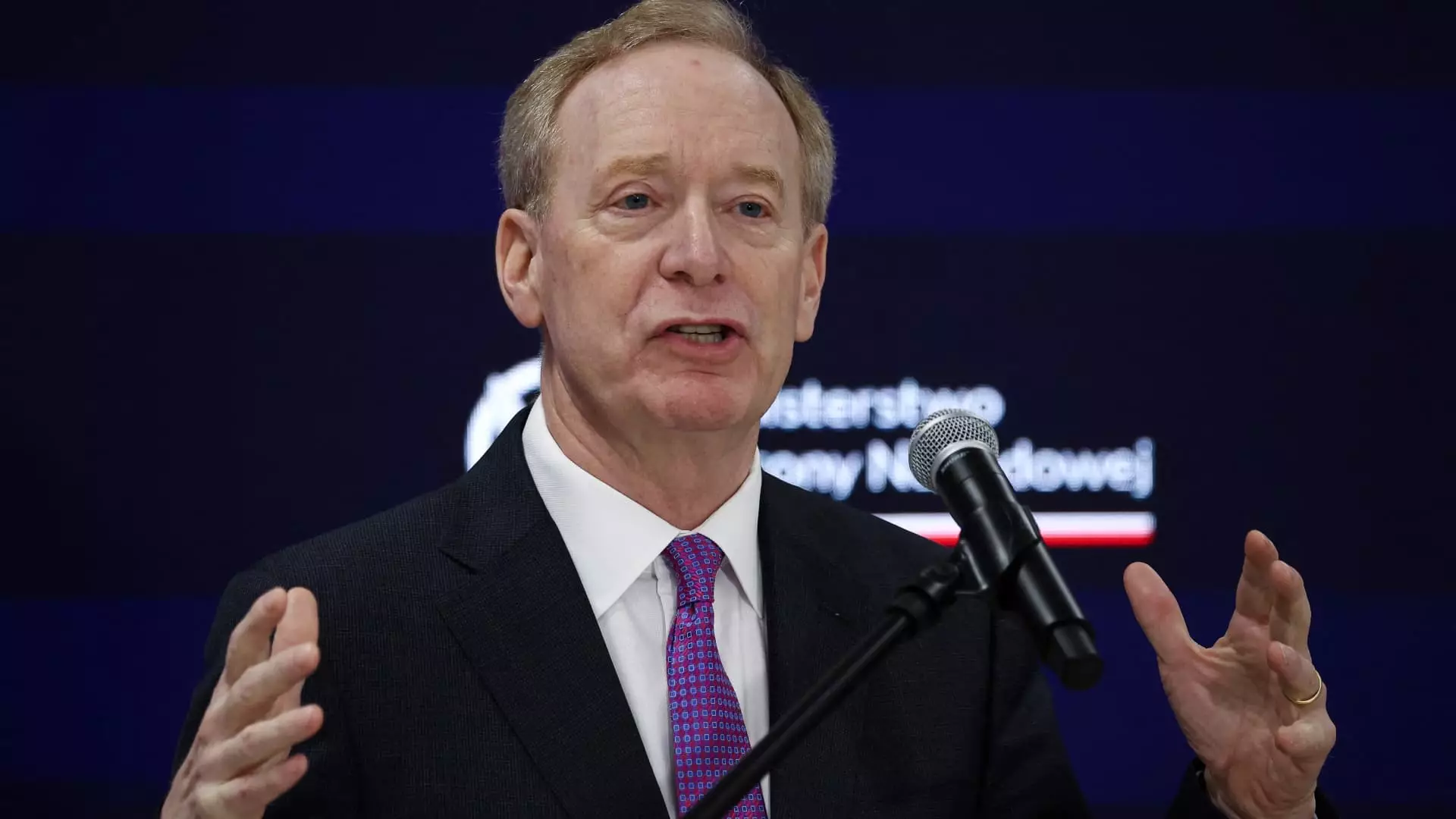In a climate where tensions between the United States and Europe are increasingly palpable, Microsoft’s President Brad Smith emphasizes the tech giant’s unwavering dedication to respecting European laws. His assertions came in a recent blog post aimed at mitigating rising concerns over U.S. trade policies, particularly in light of President Trump’s tariffs that have created unease within the European Union (EU). Smith’s message is clear: compliance with local laws is not an option for multinational corporations but rather a fundamental obligation. While Microsoft may not endorse every regulation put forward by European authorities, the company recognizes the importance of adhering to the EU’s stringent legal framework, especially as it relates to competition.
Charm Offensive in the EU
Smith’s comments are strategically timed as part of a broader charm offensive to reconcile relationships with European regulators who have historically scrutinized large American tech companies. The Digital Markets Act (DMA) is central to this ongoing scrutiny, designed to regulate the market power of “gatekeeper” firms and promote fair competition. Microsoft, alongside competitors such as Apple, Google, and Meta, finds itself under the watchful eyes of EU regulators keen to curb any monopolistic behavior. This proactive communication from Smith also serves to soften the narrative amid a backdrop of punitive measures, such as hefty fines recently levied against Apple and Meta for their infractions under the DMA.
Interplay of Trade and Regulation
The march of regulatory action in Europe occurs against a backdrop of rising trade tensions, particularly with the implementation of tariffs under the Trump administration. These tariffs have incited both political and economic backlash, provoking fears that the EU could leverage its regulatory mechanisms against U.S. tech companies to counterbalance trade inequities. Smith’s acknowledgment of European laws as applying equally to their practices reflects an understanding that this is not merely a legal obligation but a strategic business decision aimed at maintaining a positive relationship with a critical market. By aligning with local regulations, Microsoft not only fosters goodwill but also paves the way for sustainable operations within Europe.
Corporate Responsibility in the Global Landscape
The implications of Microsoft’s compliance extend beyond mere legal adherence; they signify a broader understanding of corporate responsibility. In a world where businesses wield immense power, they must be accountable not only to their shareholders but also to the societies in which they operate. Smith’s emphasis on acknowledging and respecting European regulatory frameworks underlines an evolving corporate ethos that seeks to integrate stakeholder interests into the heart of business operations. By championing adherence to laws like the DMA, Microsoft positions itself as a responsible player in the global tech arena, potentially setting a precedent for others in the industry.
The Balancing Act Ahead
However, the path ahead is riddled with complexities. The necessity of adhering to stringent regulatory standards may sometimes conflict with the innovative freedom that tech companies crave. Smith’s reassurance about Microsoft’s compliance is not just a sign of good faith; it is a pragmatic acknowledgment of the growing power dynamic in international trade and regulation. As companies like Microsoft navigate this intricate landscape, they are compelled to innovate within parameters set forth by regulatory frameworks, thus reshaping not just their business strategies but also the broader tech environment.
The Power of Dialogue
Ultimately, the dialogue initiated by Smith is crucial. As tensions between the EU and the U.S. persist, transparent communication and a commitment to collaboration could serve as a bulwark against further escalation. Microsoft’s efforts demonstrate that while disagreements may arise over policies, mutual respect and dialogue form the bedrock of productive international relations. The company’s approach reflects an adaptive mindset essential for thriving in a global economy characterized by rapid change and complex interdependencies.
In a world increasingly defined by the interconnection of markets and laws, Microsoft’s pledge to honor European regulations serves as a reminder that respect, compliance, and proactive engagement are vital for long-term success in the intricate tapestry of global commerce.

